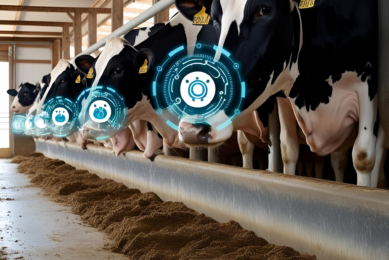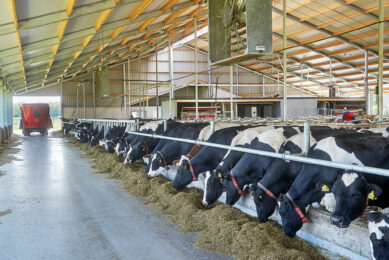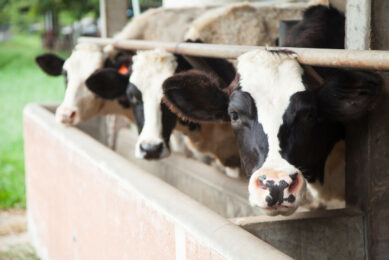Environmental award for feed conversion testing station
A Queensland, Australia cattle feed conversion testing station initiated, designed and built by two southeast beef producers has received a significant statewide environmental award.
Rathdowney producers Matthew Arkinstall and Warren Drynan are the people behind the creation of a feed efficiency test facility at the Drynan family property, Running Creek, designed to improve sustainable beef production.
The project last week received the Australian Government award for Innovations in Sustainable Farming Practice during the Queensland Water and Land Carers’ 2011 Landcare Awards ceremony at Government House.
The project involved the design and development of systems and software to individually record and calculate cattle feed intakes under controlled conditions, in order to identify more efficient cattle for use in seedstock development.
A series of successful feeding trials have been held at in the testing station at the Drynan family’s Glenapp feedlot at Running Creek. The infrastructure includes a highly modified feed trough, weighing scales, a data-logging system, and gates and barricade fencing to control the cattle access to the trough.
Large variation
The preliminary findings have so far demonstrated that there is a large variation in net feed efficiency within the breeds that have been trialled.
Results from the first feeding trial concluding late last year showed individual efficiencies ranging from 3.62:1 to 8.5:1. All animals gained in excess of 2kg/day, with the best at 3.09kg/day, based on a 77-day test.
“The problem is that it’s impossible to tell the difference between efficient converters and inefficient ones, just by looking at them,” Arkinstall said.
“Breeding cattle with the genetics predisposed to greater feed conversion efficiency, means they will eat less to gain the same or more weight. Although this has always been the aim among cattle breeders, this research provides an insight into a new and more sustainable way of how this can be achieved,” he said.
With further funding, the pair hope to expand and continue this research to produce more robust results that could have positive implications for the beef industry, from a climate change perspective. They are also looking at developing the system for more remote use.
“By using efficient bulls, producers can improve the feed efficiency of their progeny each year, and this has already been proven to reduce methane gas emissions from livestock,’’ Arkinstall said.
"Under the new Carbon Farming Initiative, these producers will be able to claim credits for the reduction in emissions, which in large herds, and with continued use of efficient sires, can equate to an unlikely source of income,” he suggested.











